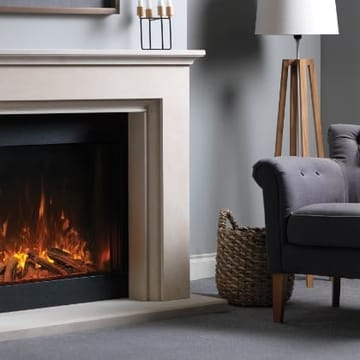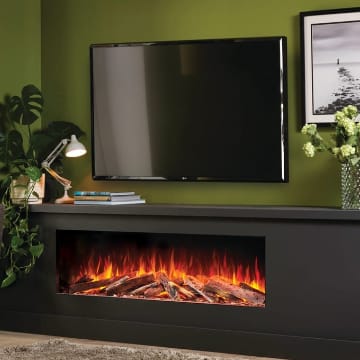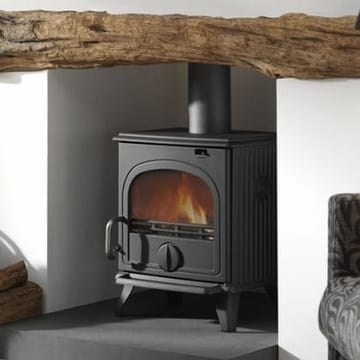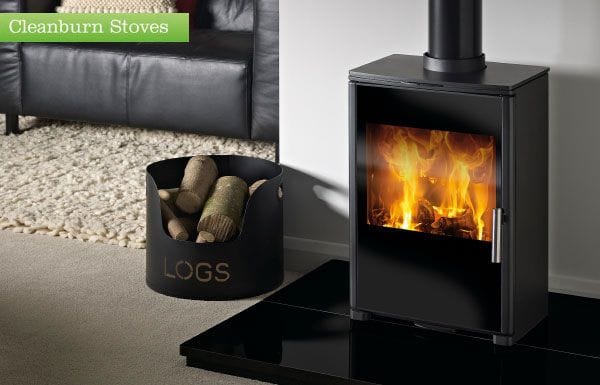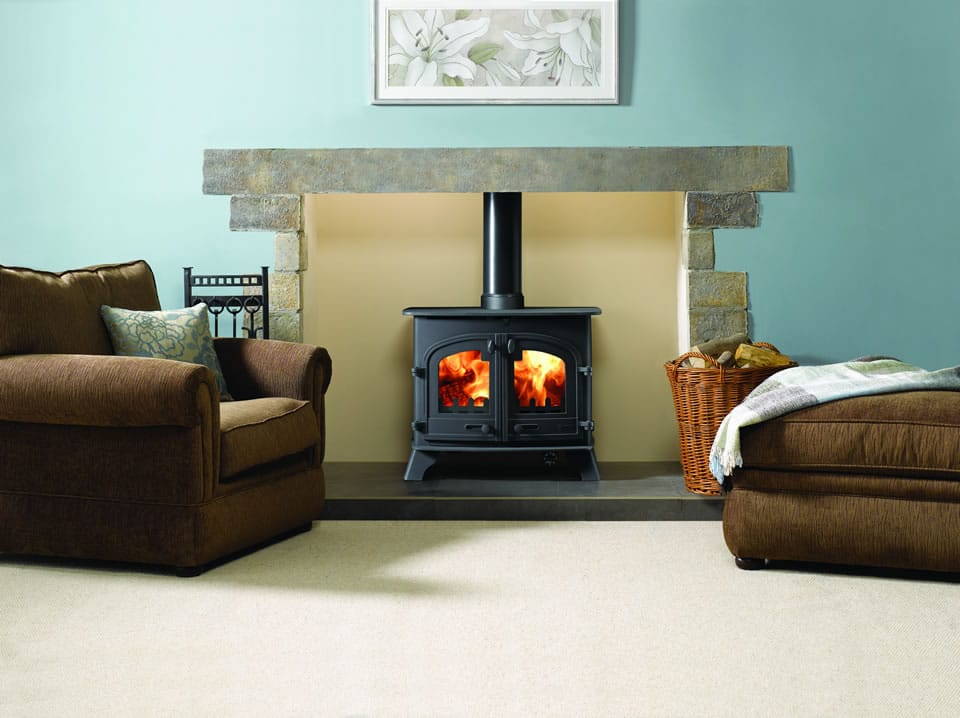Gas vs. Wood Burners: Finding Your Perfect Hearth
Here at Phoenix Fireplaces, we know there's nothing quite like the cosy glow of a fireplace to transform your home. When it comes to choosing between a gas fireplace and a wood burner, it's not always a straightforward decision. Both offer unique benefits and considerations, and understanding these can help you make the best choice for your lifestyle, home, and even your neighbours.
Let's dive into the pros and cons of each, including their environmental and health implications.
The Charm and Comfort of Wood Burners
There's an undeniable romance associated with a traditional wood-burning stove. The crackling sounds, the authentic aroma, and the mesmerising dance of real flames create an unparalleled ambiance.
Pros of Wood Burners:
- Authentic Ambiance: For many, nothing beats the sensory experience of a real wood fire.
- Off-Grid Heating: In the event of a power cut, your wood burner can still provide warmth.
- Renewable Fuel Source: Wood is a renewable resource, especially when sourced sustainably.
- Potential Lower Fuel Costs: If you have access to free or inexpensive wood, running a wood burner can be very economical.
- Potentially Lower Fuel Costs: If you have access to free or inexpensive wood, running a wood burner can be very economical.
Cons of Wood Burners:
- Maintenance & Cleaning: Requires regular cleaning of the firebox and chimney to prevent creosote build-up and ensure safe operation.
- Fuel Storage: You'll need space to store logs, and they need to be kept dry.
- Efficiency Varies: Older models can be less efficient, meaning more heat goes up the chimney. Modern, Eco-design compliant stoves are much more efficient.
- Sourcing Wood: Finding good quality, seasoned wood can sometimes be a challenge.
- Neighbour Disputes: Can my neighbourcomplain about my log burner
Environmental & Health Impact of Wood Burners:
While wood is a renewable resource, the combustion process of wood burners does have environmental and health considerations, particularly concerning smoke.
- Particulate Matter: Wood smoke contains fine particulate matter, which can be inhaled deep into the lungs. This can contribute to respiratory issues like asthma and bronchitis, and can also impact cardiovascular health, as well as contribute to lung cancer.
- Impact on Neighbours: Smoke from wood burners, especially when stoves are not operated correctly or wood is unseasoned, as well as the direction the wind blows, can drift into neighbouring properties. This can cause significant air quality issues from them, leading to unpleasant odours, health concerns for those with and without respiratory conditions, and a general nuisance. It's crucial to be mindful of your emissions and ensure your wood burner is used responsibly.
- Carbon Emissions: While wood is considered carbon neutral over its lifecycle if sustainably harvested (as the carbon released during burning is reabsorbed by new trees), incomplete combustion can release other harmful gases.
The Convenience and Cleanliness of Gas Fireplaces
Gas fireplaces offer a fantastic alternative for those seeking convenience, efficiency, and a cleaner burn without sacrificing the aesthetic appeal of a fireplace.
Pros of Gas Fireplaces:
- Convenience: Instant heat with the flick of a switch or remote control. No need to chop wood, tend a fire, or clean up ash.
- Cleanliness: No mess, ash, or soot, making them very easy to maintain.
- High Efficiency: Gas fireplaces are generally very efficient, converting a high percentage of fuel into heat.
- Variety of Styles: Available in a vast range of designs, from traditional log sets to modern media walls, integrating seamlessly into any decor.
- No Chimney Required (often): Many gas fireplaces can be vented directly through a wall, offering more flexibility in installation.
Cons of Gas Fireplaces:
- Less "Authentic" Flame: While highly realistic, the flame isn't quite the same as a real wood fire for some purists.
- Reliance on Gas Supply: Requires a connection to a gas line.
- Professional Installation: Always requires professional installation for safety and compliance.
Environmental Impact of Gas Fireplaces:
- Carbon Emissions: Natural gas is a fossil fuel, and burning it releases carbon dioxide (CO2) into the atmosphere, a greenhouse gas contributing to climate change.
- No Particulate Matter: Unlike wood burners, gas fireplaces do not produce particulate matter, which is a significant advantage for local air quality and neighbourly relations.
- Lower Local Pollutants: They generally produce far fewer localised air pollutants compared to wood burning.
Making the Right Choice for You
Ultimately, the best choice depends on your priorities:
- For Ambience Seekers with Time for Maintenance: A wood burner might be your ideal. Remember to invest in a modern, Eco-design compliant stove and use well-seasoned wood to minimise your environmental and neighbourly impact.
- For Convenience and Cleanliness: A gas fireplace offers an effortless and efficient way to enjoy a warm and inviting hearth, with a significantly lower impact on local air quality.
- Considering Neighbours and Local Air Quality: If you live in a built-up area, the impact of wood smoke on your neighbours' health and comfort is a significant factor to consider. Gas fireplaces are a much cleaner option in this regard.
No matter which option you lean towards, our team at Phoenix Fireplaces is here to help. We specialise in both electric and gas fireplaces, as well as wood burners and stunning media walls, and can guide you through the selection and installation process to ensure you find the perfect heating solution for your home.
Ready to explore your options? Contact us today for a consultation!
